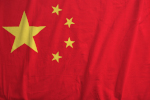
Huawei, which is one of the largest smartphone vendors in the world behind Samsung and Apple, saw its shipments rise by 44 per cent in 2015 to 108 million units.
The Chinese company recently launched its flagship smartphone, the Huawei Mate 8, in Las Vegas.
Warwick Business School professor Mark Skilton said Huawei has jumped from being an unknown Chinese company ranked sixth in the world to the fastest-growing smartphone seller.
"Over the last year Huawei has had an impressive 50 per cent sales growth compared to 27 per cent by Apple, while it has also seen tablet sales rise by nearly 75 per cent," Mr Skilton said.
"Samsung's global mobile phone market share is 25 per cent, but that has been falling, while Apple has 11 per cent followed by Huawei at 7.0 per cent in third, but it is catching up," he said.
There has been a "cultural shift" at Huawei, with the company no longer seeing itself as a telecoms network pipe, Mr Skilton said.
"[Instead, Huawei now] sees itself as a digital business focused on customer service," he said.
"This has meant a stronger focus on its customer experience management strategy and a big investment in marketing – a Western, very customer-focused approach. It is not just about the product, the Chinese company is an excellent seller.
"In a crowded, price-sensitive android market this matters greatly, [because] mobile choice and brand awareness are critical. Huawei is a prime example of a modern commercial company mindset emerging from Chinese industries," Mr Skilton said.
Huawei has also engaged with customers in local markets directly, he said, via deals with soccer clubs like Arsenal, Paris Saint-Germain and AC Milan.
"The mobile market is so competitive, success is looking after the customer, and Huawei is managing to do that and is reaching the android buyers," Mr Skilton said.
"It realises that in the digital economy understanding and talking to the customer first is critical and it follows this up with very strong customer service.
"The question is how competitors and existing players need to respond and engage the consumer mobile market that is now all about customer service and no longer just about the product," he said.





